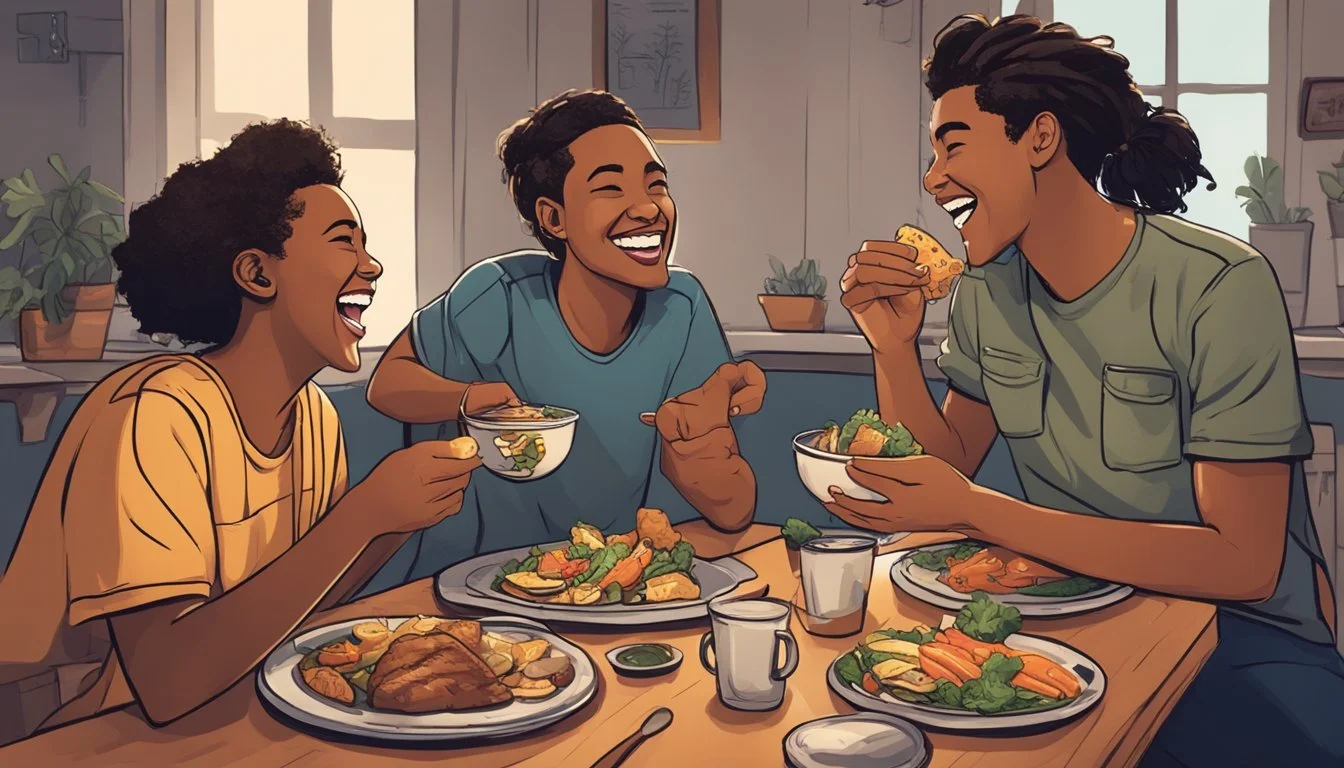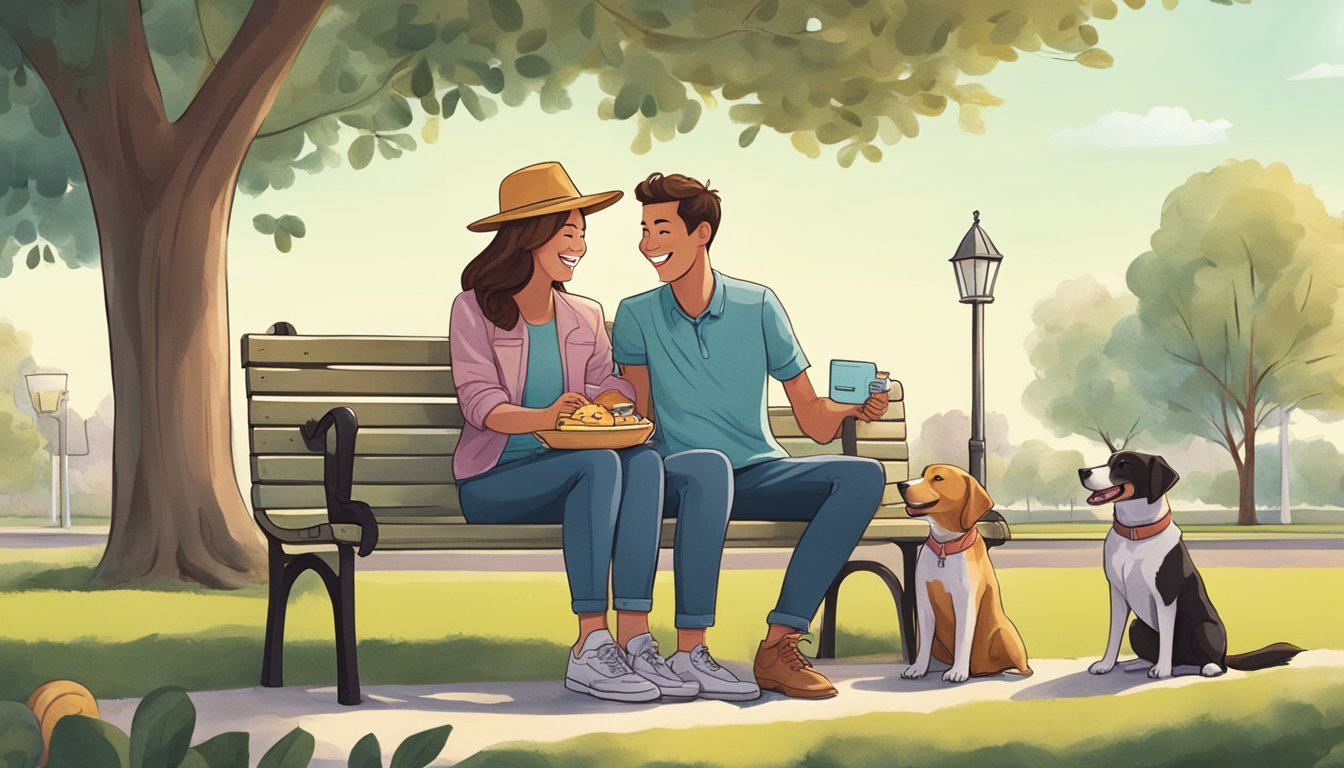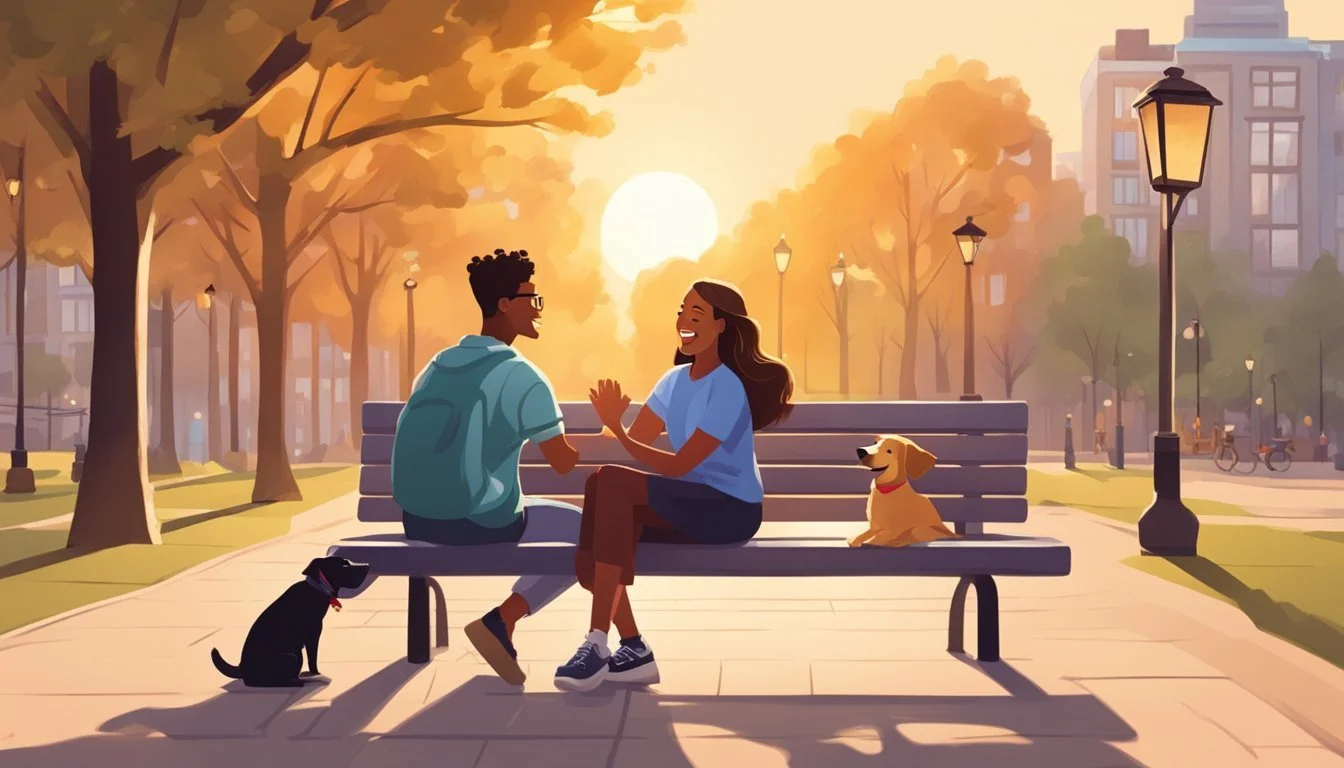10 Reasons Why Having a Best Friend is Better Than a Romantic Partner
Unveiling the True Value of Friendship
In the complexities of human relationships, the role of a best friend often stands unparalleled. Unlike romantic partners, best friends offer a level of support, understanding, and loyalty that can be both enduring and unwavering. This unique dynamic can sometimes surpass the emotional and practical benefits provided by a romantic relationship.
The essence of a best friend lies in their ability to be a constant and reliable presence. While romantic relationships can fluctuate and face various challenges, the stability and acceptance found in a best friendship can provide a profound sense of security and belonging. Exploring why a best friend might be better than a romantic partner reveals the invaluable nature of these cherished relationships.
1) Always There for You
A best friend provides constant support, regardless of the situation. Unlike romantic partners, who might come and go, a best friend remains steadfastly by your side through thick and thin.
They celebrate your triumphs and console you during hardships. This unwavering presence builds a foundation of trust and reliability that often goes unmatched in romantic relationships.
Friendships are devoid of the complicated dynamics that can arise in romantic partnerships. This simplicity enables best friends to offer unbiased advice and genuine support without the pressure of romantic expectations.
A best friend knows your life story and understands your struggles. They don't need explanations or justifications, which can often be required in romantic relationships.
During life’s toughest moments, a best friend can be the anchor you need. Their presence alone can offer a sense of comfort and stability that is crucial during challenging times.
Spending time with a best friend tends to be stress-free. While relationships require effort to maintain passion and intimacy, friendships offer a space to unwind and feel at ease.
The bond with a best friend can last a lifetime. As seen in many qualities of a good friend, these enduring relationships are built on mutual respect and constant support. This longevity can provide a sense of security that sometimes eludes romantic relationships.
2) No Judgments, Just Support
Best friends provide unwavering support without judgment. They are there through life's ups and downs, offering a safe space to share thoughts and feelings. This level of trust creates a unique bond that is often free from the pressures or expectations found in romantic relationships.
The emotional support from a close friend is critical. Unlike romantic partners, who may sometimes bring their own emotional baggage into the mix, best friends often listen and empathize without criticism. This makes it easier to discuss even the most sensitive topics.
Shared experiences further deepen this supportive connection. Best friends can relate to each other's struggles and triumphs, creating a mutual understanding. This emotional resonance fosters a sense of belonging and acceptance.
Even during disagreements, best friends aim to understand rather than condemn. They offer feedback that is both honest and compassionate. In contrast to romantic relationships, where disagreements can sometimes threaten the relationship, best friends typically navigate conflicts with more ease and grace.
Having such a support system is invaluable. It ensures that one always has someone to rely on who will listen and provide comfort without the fear of being judged.
For more information, check out additional insights on benefits of friendship and the importance of emotional support.
3) Share Everything Without Hesitation
Best friends offer a unique level of comfort and trust. Unlike romantic relationships, friend dynamics often allow for sharing personal thoughts and feelings without the fear of judgment.
Communication flows naturally with best friends. They know each other's secrets, weird habits, and insecurities, making conversations open and honest.
Sharing experiences, from the mundane to the significant, strengthens this bond. Whether it's discussing daily frustrations or dreams for the future, this unrestricted exchange fosters a deep connection.
A best friend provides unwavering support in times of need. They listen without interrupting and offer advice without being overbearing.
In friendships, there's no need to filter words or hide feelings. This authenticity leads to a deeper, more genuine connection that often stands the test of time.
The ability to confide in someone completely is a hallmark of true friendship, creating an unbreakable bond based on mutual trust and respect.
4) Memories That Last a Lifetime
Best friends often share experiences that create lasting memories. These moments are usually fun and spontaneous, making them unforgettable. Whether it’s a road trip, a shared hobby, or daily routines, these memories become cherished parts of life.
Unlike the sometimes fleeting nature of romantic relationships, friendships often stand the test of time. For instance, friends who have been close for decades accumulate a treasure trove of shared experiences and inside jokes. These enduring connections give friendships a unique resilience.
A best friend is usually there during the formative moments of life. High school antics, college adventures, and even early career milestones are often shared with a best friend. This connection adds depth to the bond, making the memories even more meaningful.
Best friends often have a unique ability to recall and relive shared experiences. Whether it’s laughing about past mishaps or celebrating old victories, this capability deepens the friendship. They can recount every detail, making the memory feel fresh and reinforcing the connection.
In contrast, friends provide a non-judgmental space to relive past missteps and celebrate achievements. This makes the memories created with a best friend comforting and enduring. For more on the lasting impact of friendships, visit Friendshipsy.
5) Unconditional Loyalty
One key aspect of having a best friend is the unconditional loyalty that comes with the relationship. This loyalty often surpasses that of romantic partners because it isn't influenced by romantic expectations or pressures.
A best friend stands by through thick and thin, offering consistent and reliable support. This dependability creates a strong foundation built on trust and transparency.
Best friends are likely to stay loyal despite disagreements or misunderstandings. This resilience in the face of conflict strengthens the bond and provides a sense of security.
Unlike romantic relationships, which may falter under stress or change, best friends often remain steadfast. Their loyalty isn't contingent on romantic affection or physical attraction.
Being able to lean on a best friend during challenging times fosters a sense of belonging and significance. This unwavering loyalty reduces feelings of isolation and promotes emotional well-being.
Through life's ups and downs, unconditional loyalty from a best friend proves invaluable. This unique bond emphasizes the importance of having someone who remains a constant, reliable presence.
6) Understand Your Weirdness
A best friend understands your quirks and odd habits without judgment. They have spent enough time with you to know the unique aspects of your personality that make you, you.
Romantic partners might appreciate your quirks, but a best friend embraces them fully. They join in on your weird hobbies and even share some of these unique interests.
Your best friend gets your inside jokes and strange expressions. These shared experiences create a bond that is difficult for romantic relationships to replicate.
They support you in all your weird endeavors, whether it’s binge-watching a niche TV series or engaging in strange food combinations. This level of support adds a layer of comfort to your friendship.
Knowing your weirdness and still choosing to stick around signifies a deep understanding and acceptance that is rare. This camaraderie strengthens your connection, enhancing the value of your friendship further.
For instance, they might know you’ve got a peculiar taste in music or an odd collection of items, and they respect that. This mutual acceptance fosters a safe space where you can be your true self without fear of being misunderstood.
7) More Fun Adventures
Best friends often share a sense of adventure that makes experiences more enjoyable. Whether it's a spontaneous road trip or exploring new hobbies, having a best friend means having a partner who's always ready for the next adventure.
They tend to be more open to trying new things together without the stress of romantic expectations.
Traveling with a best friend can also be less complicated. There's no need to worry about maintaining romantic gestures or dealing with relationship dynamics. They can focus on enjoying the moment and creating lasting memories.
Best friends usually have similar interests and comfort levels, making planning activities straightforward and enjoyable. They can easily suggest outings that they both genuinely enjoy, ensuring that every adventure is a hit.
Having a best friend means shared inside jokes and a deep understanding of each other's preferences. This bond can turn even mundane activities into exciting adventures, creating a treasure trove of shared experiences.
In challenging situations, best friends often provide moral support and encouragement. This mutual support system can turn intimidating adventures into manageable and fun experiences, pushing each other out of their comfort zones in a positive way.
Flexibility is another benefit of adventuring with a best friend. They can adapt plans without the pressure of maintaining a romantic atmosphere. This adaptability leads to spontaneous and memorable experiences that might not occur in a romantic relationship.
(Read more about the benefits of close friendships at Adventurebook).
8) No Breakup Drama
One significant advantage of having a best friend is the absence of breakup drama. While romantic relationships can end messily, friendships tend to fade more naturally.
Friends usually understand each other's boundaries, making conflicts less intense. Unlike romantic partners, they do not have the same expectations, reducing potential for serious disputes.
Moreover, friendships often come with a higher level of communication. They talk things out, leading to resolutions rather than dramatic endings. This kind of open dialogue helps both parties feel heard and respected.
In friendships, there is often more space for growth and change. While romantic relationships might end because of personal evolution, friends adapt and accept each other’s changes more readily.
Clicking here reveals how moving on from a friendship breakup involves minimal drama compared to romantic relationships. This ease helps maintain emotional stability and well-being.
9) Less Likely to Hurt You
Best friends often have a history filled with shared experiences and mutual understanding, leading to fewer misunderstandings. They tend to know each other's boundaries well, making it easier to avoid hurtful actions.
The emotional commitment in friendships generally brings a level of comfort and trust. This makes friends more mindful of each other's feelings and less likely to engage in harmful behavior.
Romantic relationships, on the other hand, may sometimes lead to emotional conflicts and misunderstandings. The intense emotions involved in romantic relationships can result in actions that hurt.
A best friend typically offers support and an objective perspective. They are often not as influenced by the intense emotional highs and lows, making it easier for them to navigate disputes calmly.
Friends usually have fewer expectations compared to romantic partners. This reduces the chances of disappointment and conflict, fostering a more stable and secure relationship.
Overall, the nature of friendships lends itself to fewer emotional hazards. This makes having a best friend a steady and reliable source of support, compared to the complexities that can arise in romantic partnerships.
Learn more about how friendships can enrich your life and provide emotional stability.
10) Effortless Communication
Best friends often share a unique bond that allows for easy and seamless communication. Over time, they develop their own vernacular, understanding each other's facial expressions, body language, and even the subtlest of tones.
This form of nonverbal communication helps them connect on a deeper level. They frequently know what the other person is thinking without needing to say a word. This intuitive understanding makes conversations more natural.
Additionally, friends feel no pressure to maintain formalities. They can speak honestly, share their thoughts freely, and discuss a wide range of topics without fear of judgment. This freedom fosters a more open and honest dialogue.
In times of need, best friends can provide support immediately, as they inherently grasp the context and emotions involved. Their ready comprehension helps them offer the right advice or simply lend a sympathetic ear.
Moreover, the mutual comfort allows for light-hearted and even silly interactions. Jokes, shared memories, and playful banter flow effortlessly, enriching their relationship with joy and laughter.
In summary, the ease of communication with a best friend is unmatched, characterized by intuitive understanding, honest dialogue, and mutual comfort. This makes the connection truly special and irreplaceable.
Emotional Support
Strong emotional support from a best friend can be invaluable, offering constant availability during tough times and a profound understanding of one's personal history.
Constant Availability in Tough Times
A best friend often provides unwavering support during challenging periods. Unlike some romantic partners who may have competing obligations, a best friend is usually more consistently available. They can quickly respond to calls or texts, offering immediate comfort and advice.
This consistent presence can be a steadying force. When one faces life’s trials, knowing that someone always has their back can significantly reduce stress and anxiety. The reliability of a best friend enables them to act as an emotional anchor, providing reassurance through difficult moments.
Deep Understanding of Personal History
A best friend typically has a deep-seated knowledge of one's personal history. This extensive understanding allows them to offer insights and support that are tailored to one's unique experiences and emotional triggers.
This profound connection often stems from years of shared experiences and conversations. They remember pivotal moments and can offer advice rooted in a deep awareness of one's past. This kind of support goes beyond the surface level, offering a more meaningful and personalized approach to dealing with emotional challenges.
The familiarity and shared history contribute to a level of comfort and trust that can be hard to match in romantic relationships.
Trust and Honesty
Trust and honesty form the bedrock of both friendships and romantic relationships. However, in friendships, these elements often allow for a unique depth and openness that isn't always present in romantic bonds.
Unfiltered Communication
Best friends often communicate without barriers, making it easier to share their true thoughts and feelings. This type of unfiltered honesty allows individuals to express concerns, dreams, and struggles openly, fostering a deeper emotional connection.
They can discuss difficult topics or confess mistakes without the same fear of repercussions that might exist in a romantic relationship. This openness encourages ongoing dialogue, enabling both parties to better understand and support each other.
Clear and transparent interactions also help in resolving conflicts more efficiently, as there is less likelihood of hidden agendas or misunderstandings. The freedom to speak candidly is often a defining aspect of close friendships, promoting a genuine bond through consistent, honest engagement.
Mutual Acceptance Without Judgment
In friendships, honesty and trust go hand in hand with acceptance. Friends are often more forgiving and understanding of each other's flaws and mistakes, providing a safe space to be oneself without fear of judgment.
This mutual acceptance allows friends to reveal their vulnerabilities and imperfections, which strengthens their bond. They know that their honesty will be met with compassion and support rather than criticism or rejection.
Through this kind of genuine acceptance, friends can provide each other with the emotional validation needed to navigate life's challenges. This unwavering support and understanding create a reliable foundation that nurtures long-term, meaningful connections.












